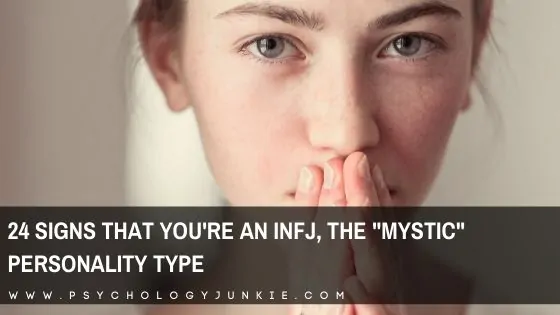How You Feel Giving Emotional Support, Based On Your Enneagram Type
You know that warm glow of helping someone through a tough time? It’s one of life’s better feelings. But sometimes, offering emotional support can feel less like a cozy campfire and more like trying to light damp logs in a monsoon. Whether you’re a natural-born cheerleader or someone who Googles “how to respond when someone cries,” your Enneagram type has a lot to say about how you handle emotional support—and how you can avoid burnout while doing it.
Thanks to a recent survey I conducted with my email subscribers, clients, and fellow coaches, we now know which types find it easier to offer emotional support and which might struggle. 1,024 people responded to the survey (82.29% were female, 14.76% were male, and 1.85% were non-binary). While there is definitely a female skew to the results, I still think the insights can be eye-opening!

Let’s dive into the data and explore how you can thrive without running out of steam.
The Emotional Support Superstars
These types said “yes” or “often” at impressively high rates when asked, “Is it easy for you to offer emotional support and affirmation?” They’re the MVPs of empathy—but that doesn’t mean they’re immune to burnout.
Not sure what your enneagram type is? Take our new personality questionnaire here!
The Enneagram Types Most and Least Likely to Struggle with Offering Emotional Support
Type 2: The Helper
(100% said it was easy to offer emotional support)
Twos don’t just offer emotional support—they embody it. They’re the ones showing up with soup, hugs, and “Let me fix your life” energy. During coaching, I worked with a Type 2 who confessed they’d spend hours a week checking in on everyone… while their own to-do list was gathering cobwebs. (Spoiler: They were overwhelmed.)
Tip for Twos: You don’t need to fix everything. One of my clients started setting “emotional office hours.” They’d say, “I’m free to chat and help this evening, but I can’t right now.” And you know what? The world didn’t implode. Twos, remember: you’re a human, not a 24/7 emotional helpline.
Find Out More About Twos: The Enneagram 2 and Stress: How to Cope When Life Feels Overwhelming
Type 9: The Peacemaker
(94% said it was easy to offer emotional support)
Nines are incredible listeners. They’ll nod, empathize, and make you feel like the only person in the world. But here’s the catch: they sometimes lose themselves in the process. It can be difficult for them to stay attuned to their own feelings, thoughts, and needs when others are asking for their emotional resources. I know a 9 who spends so much time being “the listener” that they feel a bit invisible and taken for granted. Sometimes they don’t really feel like people actually are concerned with how they feel; they believe that others are just using them as an emotional dumping ground.
Tip for Nines: Don’t just listen; share. One client found balance by practicing small phrases like, “I hear you, and here’s where I’m coming from.” It helped them stay present without turning into an emotional sponge. And also remember to take time to work out your own feelings and thoughts. Spend 15 minutes a day journaling so that you can keep site of who you are, what you need, and how you feel rather than getting swept up entirely in others’ emotional whirlwinds.
Discover More About Nines: 21 Signs That You’re an Enneagram 9 “Peacemaker”
Type 7: The Enthusiast
(84.62% said it was easy to offer emotional support)
Sevens bring a unique flavor of emotional support—one part pep talk, one part distraction, and a whole lot of energy. They’ll get you laughing when you’re on the verge of tears. And they’re skilled in the art of re-framing negatives into positives; helping you approach a problem with a whole new perspective. But constantly trying to keep things positive can be exhausting.
Tip for Sevens: Remember, it’s okay to sit with discomfort. You don’t always have to turn someone’s frown upside down. Sometimes, just sitting quietly with them is enough. And try to make time for your own quiet reflection so that you can tune in to how you feel emotionally and how your life and relationships are affecting you. This may feel boring or overwhelming, but a little time in quiet meditation and self-reflection can do wonders. This process can help you to make sure that you’re staying aligned with what you truly value in life and not just getting lost in distraction and busywork.
Find out more about Sevens: 21 Signs That You’re an Enneagram 7
Type 4: The Individualist
(72.41% said it was easy to offer emotional support)
Fours get emotions. They really get emotions. They’ve mapped out their inner world like it’s a Dungeons & Dragons campaign, complete with hidden lairs, treasure troves of feelings, and maybe a dragon or two guarding some unresolved heartbreak. When it comes to emotional support, Fours often excel at empathy—they feel what you’re feeling. But this can sometimes work against them.
Here’s the thing: Fours can get so immersed in their own emotional experiences that it’s hard to separate their feelings from someone else’s. One Four I coached admitted they’d start off trying to help a friend and end up spiraling into their own sadness. Another told me they felt pressure to share their own struggles as a way of connecting, only to realize it left the other person feeling unheard.
And then there’s the empathy overload. Fours can soak up emotions like a sponge at a carwash, leaving them emotionally drenched and exhausted.
Tip for Fours: Stay curious and set boundaries.
Instead of jumping straight into “Here’s what I’ve been through,” practice asking open-ended questions like, “What’s this been like for you?” or “How can I best support you right now?” This keeps the focus on the other person and helps you resist the urge to make the conversation about your own experiences—unless, of course, the other person invites it.
One Four I worked with found this approach transformed their relationships. They realized that while some people do love hearing relatable stories, others feel like it shifts the spotlight away from their own experience. The key is to gauge what the other person needs. If in doubt, ask.
And if you’re feeling overwhelmed by someone else’s emotions? Take a breather. One client started using the phrase, “I care about you, and I want to be fully present, but I need a little time to process.” It allowed them to stay supportive without running themselves ragged.
Fours, remember: your emotional depth is a gift, but it doesn’t have to come at your own expense. By staying curious, setting boundaries, and being intentional with your empathy, you can show up for others and protect your own emotional reserves.
Find out more about Fours: Enneagram 4 vs 5: Which One Are You?
Type 1: The Perfectionist
(72.23% said it was easy to offer emotional support)
Ones bring a unique flavor to emotional support—they genuinely want to help. But sometimes, their help comes with a side of unsolicited advice or a five-point action plan that leaves the other person wondering, “Wait, was I just coached?”
During coaching, I worked with a Type 1 who struggled with this exact issue. Whenever a friend came to them for emotional support, their instinct was to troubleshoot the problem immediately. “What if you tried X? Have you considered Y? Here’s what you need to do!” Their intentions were good, but their execution sometimes left their loved ones feeling unheard.
And then there’s the flip side: Ones who feel paralyzed by the fear of saying or doing the wrong thing. I had another client who admitted they’d avoid emotional conversations entirely unless they were absolutely sure they could “handle it perfectly.” Spoiler: Perfection is a myth, and it was holding them back from being there for the people they cared about.
Tip for Ones:
It’s not your job to fix everything, and sometimes people don’t want solutions—they just want to be heard. One client I worked with practiced responding to emotional situations with simple, affirming phrases like, “That sounds really hard. How can I best support you?” At first, it felt awkward—like trying to solve a puzzle with no pieces—but over time, they realized how much their presence alone meant to others.
If you’re someone who struggles to say the “right” thing, remember: emotional support isn’t about grand speeches. It’s about being present and showing you care. Even saying, “I’m not sure what to say, but I’m here for you,” can be incredibly comforting.
For Ones who tend to overgive, boundaries are your best friend. One client set a rule to check in with their own needs before jumping into problem-solving mode. They’d ask themselves, “Do I have the emotional bandwidth for this right now?” If the answer was no, they’d say, “I care about you, and I want to give you my full attention, but I need to recharge first. Can we talk later?”
Ones, your desire to help is admirable, but remember: you don’t have to be a flawless emotional wizard. Just being there—imperfectly, humanly—is more than enough.
Find out more about Ones: The Enneagram 1 Child
Type 6: The Loyalist
(70.83% said it was easy to offer emotional support)
Sixes are the emotional support equivalent of a storm bunker—dependable, prepared, and always ready for the worst-case scenario. If you’re in a crisis, a Type 6 will have tissues, snacks, and a plan for your next ten steps. But here’s the issue: Sixes can also worry themselves into an emotional pretzel trying to anticipate everything you might need. It’s like they’ve mentally packed for a three-day camping trip when you just needed a chat over coffee.
One Six I coached admitted they’d stress for days about how to support a friend. They’d lie awake thinking, What if I say the wrong thing? What if I make it worse? What if I accidentally cause a nuclear-level friendship meltdown? And by the time they worked up the courage to reach out, their friend had already moved on.
Tip for Sixes: Keep it simple.
You don’t need to pregame an emotional support session like it’s a summit meeting. I worked with a Six who started using a grounding mantra before conversations: I don’t have to fix everything. I just have to listen. It helped them shift from anxious over-preparing to being fully present.
If you’re still unsure what to say, here’s a cheat code: Ask questions. One Six told me their breakthrough moment came when they stopped trying to offer advice and started saying things like, “What’s been the hardest part of this for you?” or “How can I best support you?” No bunker required.
Discover more about Sixes: The Stressed Enneagram 6: Navigating Anxiety, Finding Stability
Type 8: The Challenger
(54.45% said it was easy to offer emotional support)
Eights are the gladiators of the Enneagram. They’ll fight for you, defend you, and build an emotional fortress around you if they sense you’re in danger. However, this is not the case if you’re the kind of person who overreacts to everything or isn’t even trying to find your own solutions. Sitting in vulnerability and emotional sensitivity isn’t always their favorite pastime. One Eight I worked with summed it up perfectly: “I’m great at protecting people, but don’t ask me to talk about feelings.” Still another Eight I know is a therapist and is truly talented at offering people a listening ear and insightful guidance.
The challenge for Eights isn’t that they don’t care—it’s that they express their care in action rather than words. They’ll move mountains for you, but they might not stick around to ask how you’re feeling about all the mountain-moving.
Tip for Eights:
One client learned to frame their emotional support in straightforward terms, like, “I’m here for you. Let me know how I can help.” This let them stay authentic to their no-nonsense style without coming across as detached.
And if you’re feeling brave, try sitting with someone’s emotions without jumping to fix or defend. One friend I know started small by practicing phrases like, “That sounds tough. I’m here for you.” They admitted it felt like speaking a foreign language at first, but it made their relationships stronger—and nobody spontaneously combusted.
Type 3: The Achiever
(44.44% said it was easy to offer emotional support)
Threes are goal-oriented and ambitious with a knack for navigating challenges with competence. Yet emotions don’t come with checkboxes or measurable outcomes, so for many Threes, offering emotional support can feel like being handed a Rubik’s Cube with all the stickers peeled off.
I once worked with a Type 3 who said they’d rather help a friend build a website or train for a marathon than sit through a heart-to-heart. Their well-meaning practicality often left people feeling unheard, even though their intentions were good. I know another Three who was skilled at offering advice and solutions, but struggled more with simply being present. And I know yet another Three (I know a lot of Threes) who literally runs a coaching platform and is deeply attuned to what makes people tick, so offering emotional support is a breeze.
Tip for Threes: Redefine success.
Instead of focusing on fixing someone’s problem, think of emotional support as an investment in the relationship. One client started setting small, manageable “emotional goals,” like asking one friend each week, “How are you really doing?” Over time, they discovered that these moments of vulnerability deepened their connections—a return on investment that even a Three could appreciate.
If sitting with someone’s feelings makes you want to claw your way out of your own skin, try breaking the moment into “actionable steps” in your head: 1) Ask a thoughtful question. 2) Listen. 3) Resist the urge to offer advice unless explicitly asked. Trust me, it works.
Type 5: The Investigator
(38.46% say it’s easy to offer emotional support)
Fives are the Enneagram’s resident brainiacs. If emotional support were a research paper, they’d crush it. But when emotions get messy or unpredictable? That’s when Fives start looking for the nearest exit. One Five I coached said, “I love my friends, but I can only handle so much emotional chaos before I need a nap and a hot tea”
Fives tend to retreat when feelings get too intense—not because they don’t care, but because they’re protecting their energy. Feeling overwhelmed by others is something they dread. This can make them seem distant, even when their heart is in the right place. Some Fives overcome this tendency; I’ve known several Enneagram Fives who were therapists, for example, and literally spend all day listening to people’s messier feelings. For them, analyzing the feelings in-depth like one would analyze a brain teaser keeps them stimulated and interested. Feelings are parts of a puzzle, and you’ve just got to figure out what they all mean and how they connect with everything else.
Tip for Fives: Set boundaries and show up.
One client found success by offering support in small, manageable ways. Instead of avoiding emotional conversations entirely, they started sending texts like, “Thinking of you—let me know if you want to talk.” It let them stay connected without feeling overwhelmed.
Another Five learned to set time limits for emotional conversations. They’d say, “I can chat for 15 minutes, but then I need to recharge.” This simple boundary helped them show up without running themselves ragged.
Fives, your thoughtful, measured approach to emotional support is a strength. You don’t have to dive into the deep end—just dipping a toe in can mean the world to someone who needs you.
Find out more about Fives: The Enneagram 5 Investigator
What Do You Think?
How do you manage emotional support? Does it drain you or revive you? Let us know if you have any suggestions or insights in the comments! We’d love to hear from you.











